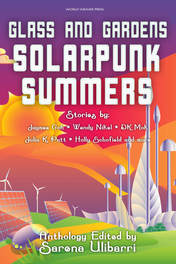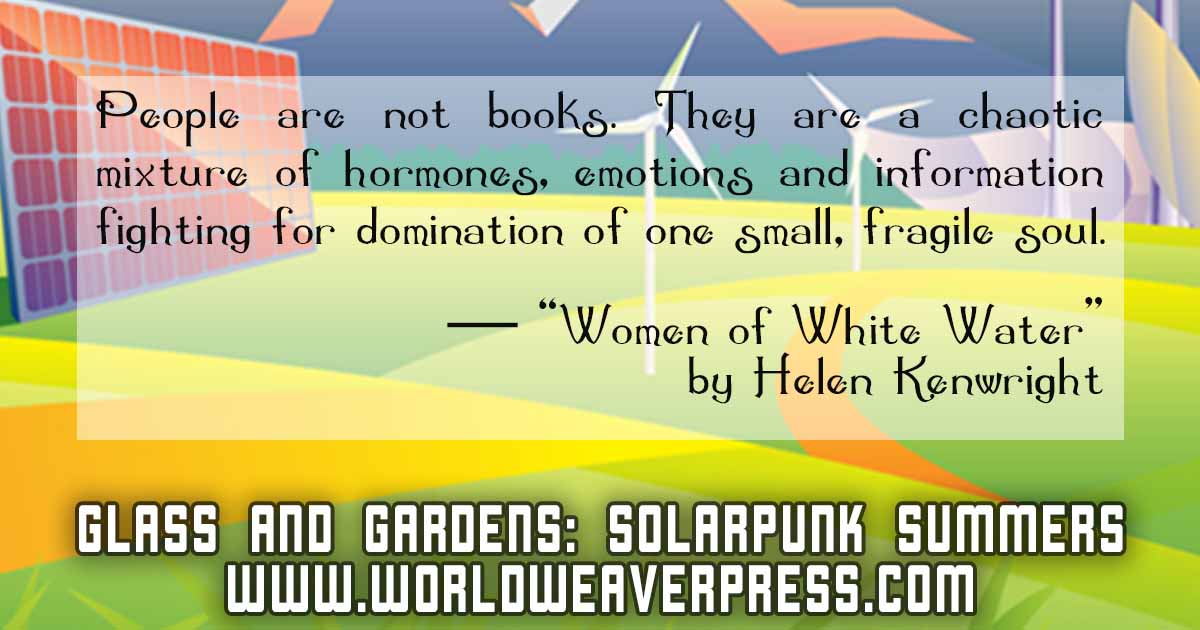 by Helen Kenwright I first read E.F. Schumacher's Small is Beautiful: Economics as if People Mattered back in the late 1980s. I'd just finished my BA in Sociology, and was working for a Fair Trade shop in York. It was one of a collection of books that gave me hope amid the spectre of crumbling capitalism, environmental destruction and triumphant patriarchy we were headed for. The Green movement offered an alternate vision of society to fight for: one based on community, social justice and ecology. I've been a hopeful Green ever since, and with every campaign I’m involved in, every election I fight, every piece of policy I help to develop, I become more convinced that three things will save us from the dystopia so many consider us doomed to face. The first is that human beings show immense capacity for change and adaptation. The second is that while the climate deniers have been denying, and capitalism has been issuing vague, unrealistic promises, scientists have been developing amazing technology that could just save us. The third (and most important) is that we still have hope. All we need is the will, and that, I believe, comes from the imagination. That’s where us writers and artists come in. In solarpunk I found an artistic movement to match the political ideals I've worked for all these years, and the idea of White Water swiftly followed. Berta’s world would have the world-saving sustainable technologies we expect of solarpunk. She lives in a future where we woke up in time and saved our world from destruction. But just as important, for me, is to explore what communities are like in a sustainable future. Schumacher's 'small is beautiful' philosophy predicted not only the economic disasters of global economies, but also the cost to human wellbeing. He foretold the rise of mental illness we are now experiencing. He argued that small communities with a focus on meeting local needs led to more healthy human relationships. The community is recognised as an ecosystem, where diversity is a source of strength and we benefit from the development of individual skills and interests. So White Water is one vision of what a solarpunk, Schumacher-inspired world might look like: independent, inter-related communities, growing most of their own food, generating their own power, building their own lives. The more solarpunk I write, the more fascinating questions spring to mind. If technology is used to give us all more time (rather than some of us more money), what would people do with that time? If we truly accept our place as part of our natural environment, rather than trying to subdue or own it, how does that affect the way we treat our world? If we celebrate rather than fear diversity, how would that impact our interactions, our governance, our relationships? What would change? And what would stay the same? Berta has special gifts, which represent the magic that patriarchy stifles in our current world. Who knows what human talents might emerge, if we are free to explore them? There's so many more aspects of this world I want to explore through the community of White Water. I want to know what life's like for Reg, a transgender person in a society where gender fluidity is accepted as a part of life. How do people cope with the inevitable scarcity of a sustainable world? Many of these questions also appear in other brilliant works in the 'Glass and Garden’ anthology. Solarpunk is not utopia, and it is not a single vision: it is a host of fairer, more sustainable, more hopeful ways of being human. I hope that by exploring these ideas through fiction, I and my fellow solarpunk writers can offer a vision of an aspirational future that we might all be inspired to work towards. ----- There are currently three other Berta stories available, exploring a few of these questions:
Helen Kenwright writes hopeful speculative fiction, and is currently working on a steampunk/solarpunk novel about history, humanity and unexpected consequences. She has an MA with distinction in Creative Writing from York St John University, and runs the Writing Tree, an organisation offering online creative writing tuition and support. She teaches creative writing for Converge, a project at York St John University which offers educational opportunities for people recovering from mental ill-health, and for the University of York's lifelong learning programme. Find more at www.helenkenwright.com or on Twitter at @hnkenwright
0 Comments
Your comment will be posted after it is approved.
Leave a Reply. |
World Weaver PressPublishing fantasy, paranormal, and science fiction. Archives
February 2024
|
- Home
-
Books
-
All Books
>
- Beyond the Glass Slipper
- Bite Somebody
- Bite Somebody Else
- Black Pearl Dreaming
- Cassandra Complex
- Causality Loop
- Clockwork, Curses, and Coal
- Continuum
- Corvidae
- Cursed: Wickedly Fun Stories
- Dream Eater
- Equus
- Fae
- Falling of the Moon
- Far Orbit
- Far Orbit Apogee
- Fractured Days
- Frozen Fairy Tales
- Glass and Gardens: Solarpunk Summers
- Glass and Gardens: Solarpunk Winters
- Grandmother Paradox
- Grimm, Grit, and Gasoline
- Haunted Housewives
- Heir to the Lamp
- He Sees You When He's Creepin': Tales of Krampus
- Into the Moonless Night
- Jack Jetstark's Intergalactic Freakshow
- King of Ash and Bones (ebook)
- Krampusnacht
- Last Dream of Her Mortal Soul
- Meddlers of Moonshine
- Mothers of Enchantment
- Mrs Claus
- Multispecies Cities
- Murder in the Generative Kitchen
- Recognize Fascism
- Scarecrow
- Sirens
- Shards of History
- Shattered Fates
- Skull and Pestle
- Solarpunk (Translation)
- Solarpunk Creatures
- Solomon's Bell
- SonofaWitch!
- Speculative Story Bites
- Trenchcoats, Towers, and Trolls
- Weredog Whisperer
- Wolves and Witches
- Anthologies and Collections
- Novels
- Novellas
- Fairy Tale
- Fantasy
- Romance
- Science Fiction
- Urban/Contemporary Fantasy
- Young Adult SFF
-
All Books
>
- Blog
- About
- Contact
- Press / Publicity
- Newsletter Signup
- Privacy Policy
- Store


 RSS Feed
RSS Feed